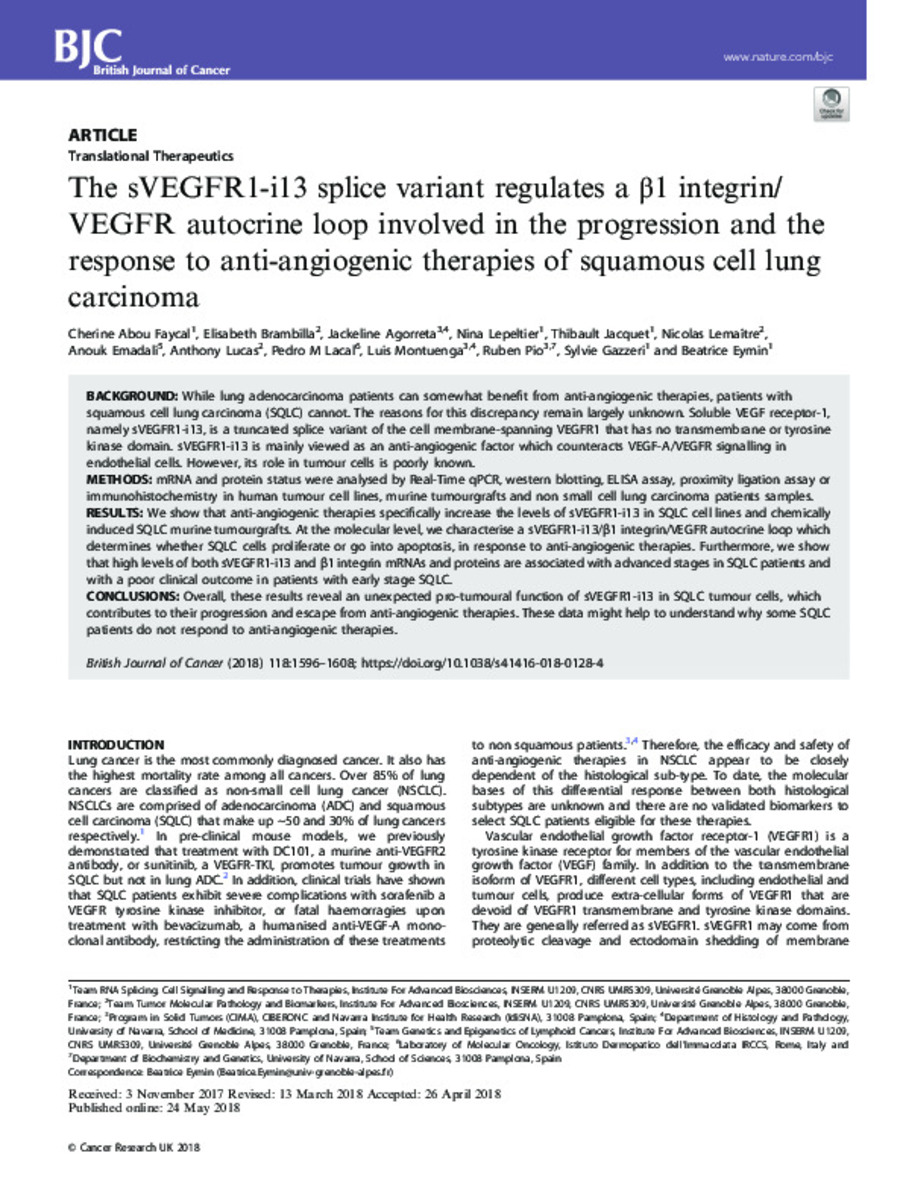The sVEGFR1-i13 splice variant regulates a beta 1 integrin/VEGFR autocrine loop involved in the progression and the response to anti-angiogenic therapies of squamous cell lung carcinoma
Keywords:
Squamous cell lung carcinoma (SQLC)
Anti-angiogenic therapies
VEGF-A/VEGFR
Publisher:
Springer Science
Note:
This work is published under the standard license to publish agreement. After
12 months the work will become freely available and the license terms will switch to
a Creative Commons Attribution 4.0 International (CC BY 4.0).
Citation:
Abou-Faycal, C. (Cherine); Brambilla, E. (E.); Agorreta, J. (Jackeline); et al. "The sVEGFR1-i13 splice variant regulates a beta 1 integrin/VEGFR autocrine loop involved in the progression and the response to anti-angiogenic therapies of squamous cell lung carcinoma". British journal of cancer. 118 (12), 2018, 1596 - 1608
Statistics and impact
0 citas en

Items in Dadun are protected by copyright, with all rights reserved, unless otherwise indicated.










